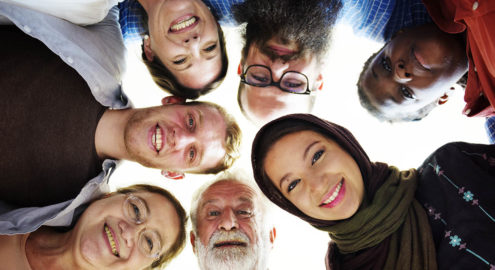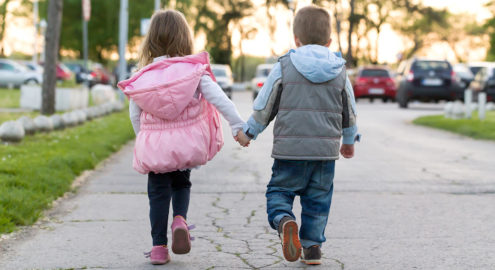What Is It?
Globalizing forces—from trade and technology to migration and media—have made our world today more interconnected than ever before. How can we best help young people develop the competencies and consciousness to successfully navigate and make a positive difference in such a world? The relatively recent concept of global citizenship education (GCE) is an umbrella term for many approaches to this challenge.
Unlike national citizenship, global citizenship is not a legal status, but a constructed identity based on moral commitments such as human rights and social responsibility. Though the term has no one agreed-upon definition, GCE often includes goals such as awareness of the wider world and its people, understanding of how the various systems of the world (e.g., economic, political, cultural, environmental) work on a global scale, respect for and valuing of diversity, and motivation and willingness to act to make the world more just and sustainable.
It is this focus on action and involvement that differentiates GCE from other types of “global education.” In other words, GCE involves the cultivation of not only knowledge about the world, but also the skills and attitudes necessary to participate in changing it.
A middle school teacher wants her students to understand and care about global issues and how they affect people around the world. For instance, as part of an academic unit on climate change, she has her students read research and perspectives on how climate change, as well as regulations meant to combat it, may impact various communities. She then has the students participate in role-play exercises in which they adopt the perspectives of different stakeholders, engage in critical discussions with each other, and try to come to collaborative decisions on what to do going forward.
To broaden his students’ intercultural knowledge and empathy, a high school teacher has small groups of students work together to produce a creative product (e.g., video, blog, art piece, poem) about a social or political issue of their choice. Then, each group is paired with a group of students from another country who completed a similar project; the groups share and talk about their work with each other, and end by discussing what they all can do to make a difference with regards to the issues they’ve learned about. Finally, each group presents a summary and reflection on what they learned to the whole class.
Why Is It Important?
Though the research on global citizenship education (GCE) is still limited, studies have shown that GCE efforts can have many benefits for youth, both as individual students and as engaged citizens:
Young people are curious and concerned about challenging topics.
- Adolescents show concerns about social issues that tend to parallel the political issues of the time.
- Although teachers—especially in the U.S.—are often uncomfortable with difficult or controversial world issues and wary of introducing them at school, students are interested and eager to learn about such topics.
GCE can build not only students’ knowledge and skills, but also their interest in and empathy for people and issues outside their everyday lives.
- GCE programs that relate to real-world issues not only increase students’ knowledge and concern about the issues; they can also boost students’ general academic engagement, motivation, and critical-thinking abilities.
- GCE activities that involve working with others can cultivate the kind of interpersonal skills—such as communication, cooperation, and problem-solving—that students will need to function as global citizens and agents of change.
- When students are able to interact with people from other contexts/cultures, whether real or simulated, they can experience growth in intercultural interest, sensitivity, and empathy.
The best way to help students translate their knowledge, skills, and attitudes into active citizenship is to provide opportunities for positive participation in their schools and communities.
- Involvement in democratic practices at school empowers students to make a difference, setting them up to engage positively with the larger world.
- Community service, especially when it is long-term, incorporates student autonomy, and serves a humanitarian cause, has been shown to make students more prosocially oriented.
- Service-learning can be a powerful tool to help students understand how local and global issues connect, while giving them the chance to “act globally” through local community involvement.
Practices

Take-Home Skill: Talk with Teens about Equity and Justice

Finding Wonder through Art in Community

Inspiring Virtue with Moral Beauty

Inspiring Awe

Promoting Perspective-Taking Through the Use of Literature

It's Up to Us to Stick Our Necks Out

Who Are Your Heroes?

Strategies for Teaching Fearless SEL for Societal Change

The World is a Dance

Responding to Differences

From Sympathy to Action

Earthrise: Bearing Witness to Our Planet

Earthrise: Fostering Awe

Earthrise: Cultivating Global Citizenship

Earthrise: Instilling Reverence for the Earth

Why Do Good People Do Bad Things?

Loving-Kindness Buddy Wishes

Gratitude for Our Food

Do you want to dive deeper into the science behind our GGIE practices? Enroll in one of our online courses for educators!




